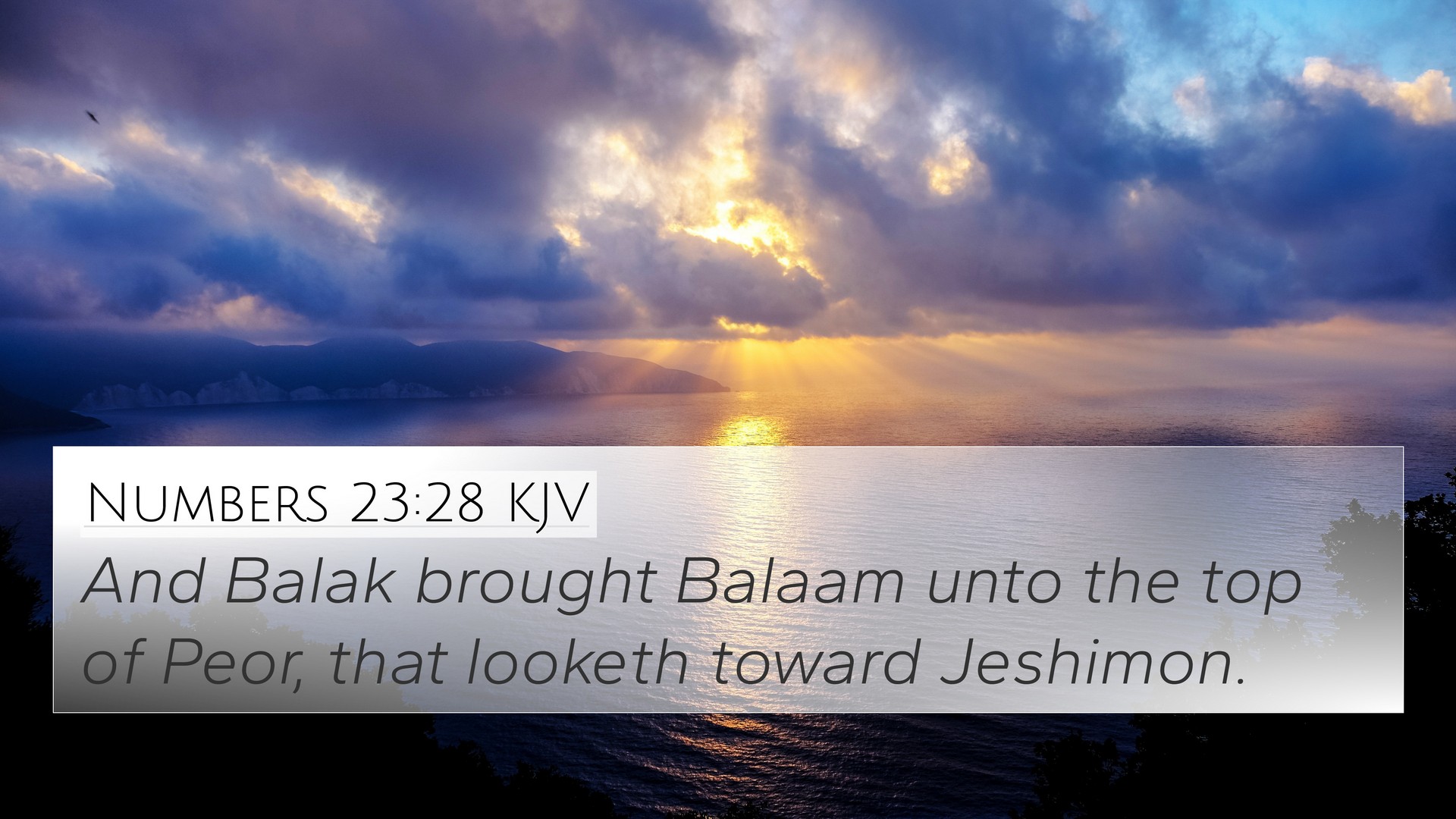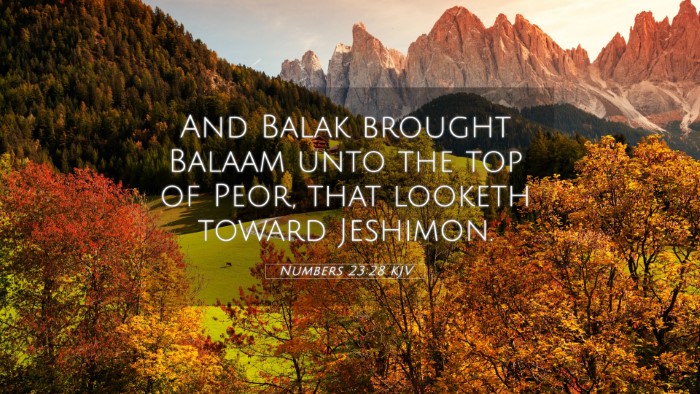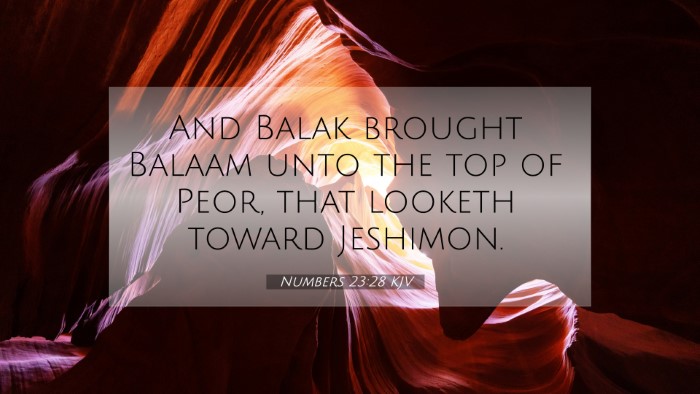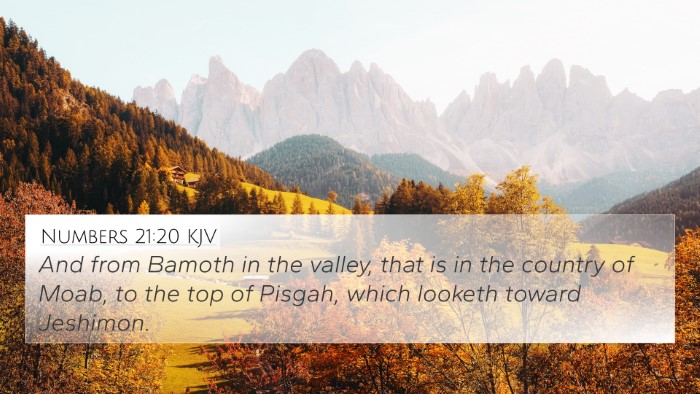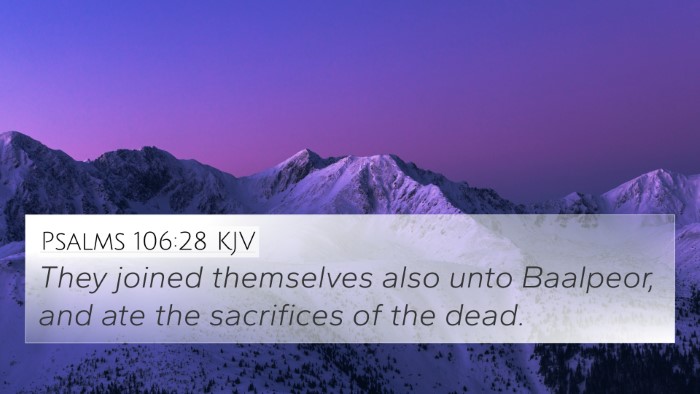Understanding Numbers 23:28
Verse Context: Numbers 23:28 states, "And Balak brought Balaam unto the top of Peor, that looketh toward Jeshimon." This verse occurs during a critical moment when Balak, the king of Moab, seeks to enlist the prophet Balaam to curse the Israelites. The location mentioned, Peor, is significant as it provides a vantage point where sacrifices could be offered in an attempt to invoke divine assistance against Israel.
Significance of the Location
The choice of Peor is notable. The top of Peor, overlooking Jeshimon, indicates a place of significance for pagan worship, reflecting Balak's desperation to gain an advantage over the Israelites. Public domain commentaries provide insights into why this location was chosen:
- Matthew Henry: This setting serves to illustrate the misguided attempts to manipulate God by appealing to His sovereignty from a high place of sacrifice.
- Albert Barnes: Balak's choice reveals the deep-seated fear and animosity of the Moabites towards the Israelites, as they sought supernatural interventions against them.
- Adam Clarke: Balak's actions demonstrate a profound misunderstanding of God's will and highlights the absurdity of trying to control divine outcomes through ritual.
Thematic Connections
The verse of Numbers 23:28 can be cross-referenced with several passages that explore themes of divine dominion, idolatry, and the resistance of Israel's enemies:
- Exodus 23:22: "But if thou shalt indeed obey his voice, and do all that I speak; then I will be an enemy unto thine enemies, and an adversary unto thine adversaries."
- Isaiah 54:17: "No weapon that is formed against thee shall prosper; and every tongue that shall rise against thee in judgment thou shalt condemn."
- Psalm 2:1-2: "Why do the heathen rage, and the people imagine a vain thing? The kings of the earth set themselves, and the rulers take counsel together, against the Lord, and against his anointed."
- Revelation 2:14: Notes the teaching of Balaam and the error of partnership with idolatry.
- Deuteronomy 23:4: Gives the background that led to Israel's relations with Moab.
- Psalm 60:12: "Through God we shall do valiantly: for he it is that shall tread down our enemies."
- Romans 8:31: "What shall we then say to these things? If God be for us, who can be against us?"
Interpretation and Application
This verse encapsulates a powerful narrative about how human attempts to thwart God’s purposes are futile. The following points summarize the key interpretations from the commentaries:
- Divine Sovereignty: God’s will cannot be overruled by human plans or schemes, evidenced by the futility of Balak's intentions.
- Idolatry and False Worship: Balak's actions illustrate the persistence of idolatry and the false notion that God can be persuaded through rituals.
- Hope in God's Protection: The historical context reassures believers today of God’s unwavering support against opposition.
Scriptural Cross-Referencing
Cross-referencing such verses offers deeper insights into the overarching narrative of God's faithfulness to His people and the consequences of disobedience. Tools for Bible cross-referencing, such as a Bible concordance or a Bible cross-reference guide, can aid in identifying thematic connections.
How to Use Bible Cross-References
By engaging in cross-reference Bible study methods, readers can enhance their understanding of related scriptures and examine the connections between Bible verses. This practice encourages a comprehensive grasp of biblical teachings, enriching personal study and sermon preparation.
Conclusion
Numbers 23:28 encourages a reflective examination of faith, the nature of God, and our approach to worship. Recognizing the futility in opposing God's will reassures believers that they can find strength and safety in His promises, irrespective of the challenges posed by the world.
